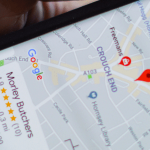A few days ago, I met with an old friend who had recently started up his own business.
He was looking for some advice. His company was doing well. He had a popular niche product and a list of customers waiting to buy it. But he wanted to take things to the next level.
Soon his company was going to expand, and he knew that he’d need to find new customers somehow. He couldn’t live off word-of-mouth forever. That’s why he came to me.
So I sat him down, started to tell him what his first steps would be. But each time I told him what he needed to do, he would cringe. He never had to say it, but I knew what he was thinking, “I don’t want to sell out.”
I’ve heard this before.
Often when people go into business for the first time, they find it hard to market themselves. They often see marketing as a negative thing. They don’t want to be like every other business out there. They think that the more they run their business like their larger competitors, the less unique they’ll become.
They don’t want to be “just another company”.
Here are a few points I threw at my friend to think about:
Growing Doesn’t Mean Losing What Makes You Unique
A common issue for businesses is that growth means more employees, more products, and more customers. Which often can lead to the personal connection of a smaller business being lost.
However, it doesn’t have to be that way. When a business grows, it’s easy to lose the human element as it often feels like the least important thing to focus on when there are a hundred other things to think about.
But by choosing to make that human element something important to your business and its ethos, you can ensure you gain customers while continuing to make connections. If it’s important to you, nothing will stop you.
The great thing about being a small business is that the business itself is more accessible. By keeping that accessibility as you grow, you won’t lose what makes you unique.
It’s also worth bearing in mind that you’re the business owner, so you’re the one that controls what makes you unique. No matter how big you grow.
There’s Nothing Wrong With Promoting Yourself
Many people balk at the idea of promoting their product as they fear a negative backlash. I often find that it’s not the imagined backlash that’s the problem. Often it’s just a case of feeling insecure with the business.
“Marketing” often feels like a dirty word to some as they think everybody will look at them and see a Used Car Salesman.
I prefer to think of marketing as simply a way to connect people to what they want.
My friend has a great product that he’s passionate about. A product that many people would love to use as it would solve some of their problems.
But without making those people aware of the product, his passion is wasted. Just because he wants to share his product with others, that doesn’t mean he can’t genuinely want to help others.
If I have a problem with my plumbing, I don’t get annoyed at plumbers for putting ads online. I’m grateful that they’ve made it easier for me to connect with them.
Truly Loyal Customers Don’t Judge You
This is some advice that isn’t even about business, so much as it is life.
People often feel bad when they make changes in their own lives because of negativity from their friends. But if somebody doesn’t accept the changes you make, are they really your friend? (No!) And if they’re not your friend, why should you care what they think?
The same can be said for business. Any “loyal customer” that turns their back on you when you make decisions necessary to keep your business going isn’t a loyal customer at all. So why care what they think?
A Niche Won’t Last Forever
This I leave for last, as it’s a sad truth.
If you’re not willing to expand your business into new areas and create new products that appeal to a range of customers, your business will be dead in the water.
My friend’s business is doing well now because his product is unique and he’ is tapping into a dedicated group of customers. But what will he do when all of those customers have his product? Eventually, there’ll be nobody left to buy what he’s selling.
So he has two choices:
Either to find new customers or sell new products.
Regardless of his decision, he’s going to have to connect people to his product.
Which means marketing.






